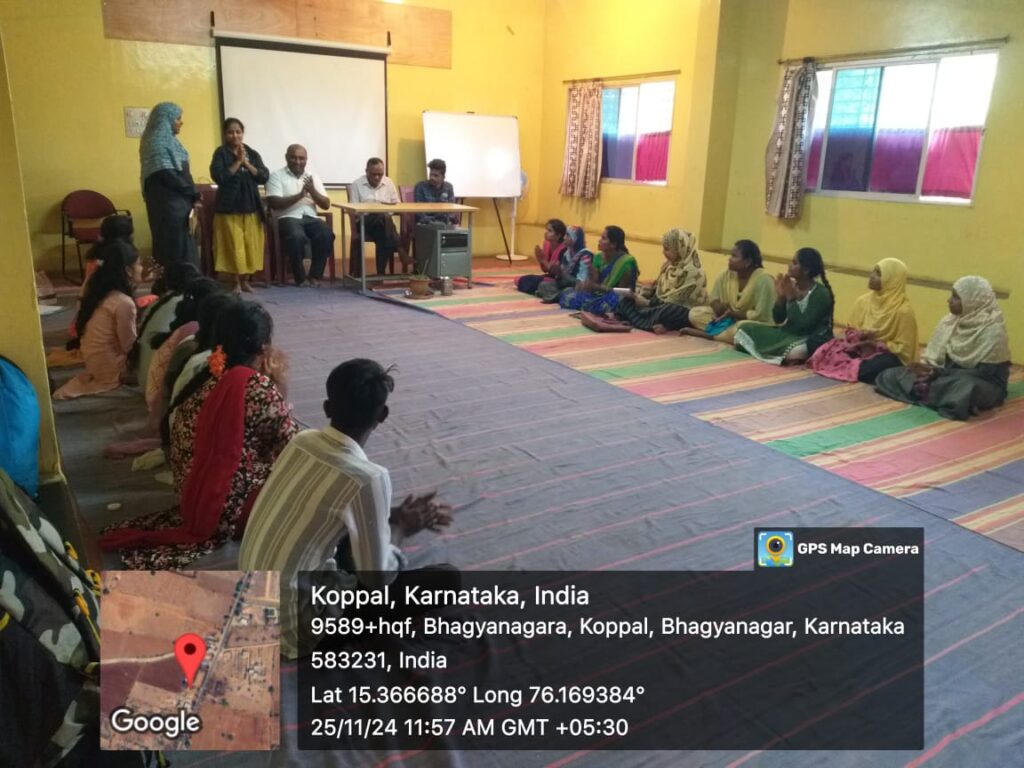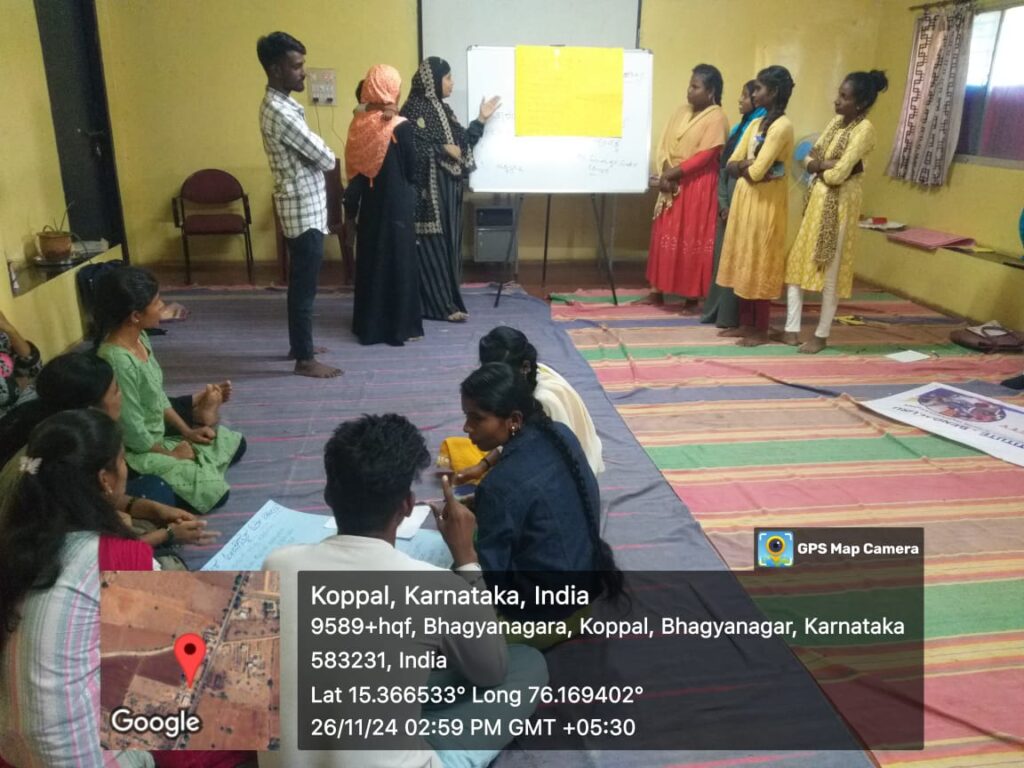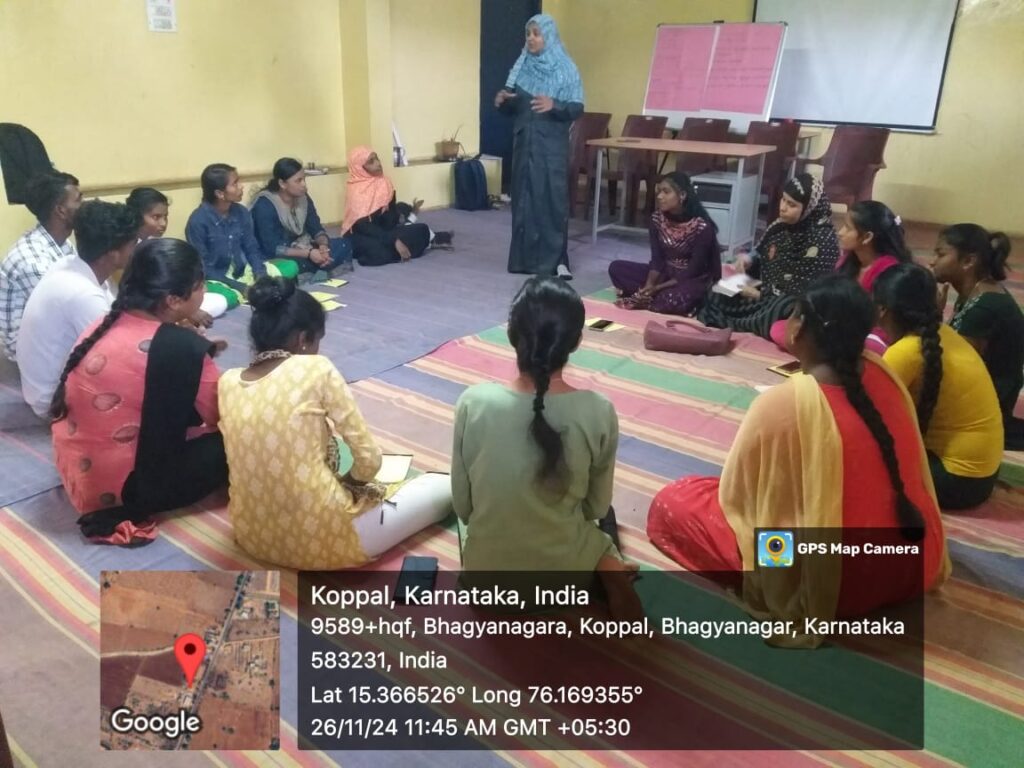


Program: “Equality in My Family – Equality to All”
Place: Koppal Zone
Dates: November 25 – 27, 2024
Partner Organization: Manasa Sichrem, Angala Trust, Nerala, Sneha & Alfa
Resource Person(s): Ms. Jyothi Itnal, Ms. Salima, Ms. Gouthami & Mr. Anand
Participants: 26 (Female: 23 & Male 03)
The Basic Module I: Self & Society conducted in the Koppal Zone received overwhelmingly positive feedback from the youth participants. They described the program as a transformative and joyful experience that offered new learnings and opportunities for self-reflection. For many, it was their first encounter with personal introspection and gaining awareness of their social skills and societal issues. Participants highlighted the value of activity-based learning, the joy of forming new friendships, and the insights gained into problem-solving and social guidance. The training allowed them to understand life’s complexities, enhancing their knowledge of social structures and guiding them to take thoughtful decisions.
The learnings and insights gained by participants were profound, bridging themes such as self-awareness, self-esteem, societal structures, and community engagement. Key takeaways included understanding the caste / varna system, gender equality, and the lives of marginalized communities such as Dalits, SC/ST and the Devadasi system. The training cultivated empathy and challenged prejudices, helping participants see marginalized individuals as equals with shared feelings and humanity.
Personal transformations included increased confidence, reduced anxiety, and a newfound respect for education and self-development. Many expressed a desire to implement their learnings by addressing social inequalities, spreading awareness, and creating an inclusive environment in their communities. The participants also offered thoughtful suggestions for future sessions, such as a focus on casteism, women’s issues, personality development, and career guidance, ensuring the program continues to evolve and address their needs effectively
Mr. Manjunath M
Facilitator, Karnataka State
Indian Social Institute – Bengaluru
Social Inclusion and Democracy Unit
